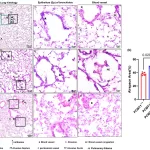Published in the Journal of the American College of Cardiology, a new study has revealed a concerning link between hypertensive disorders of pregnancy (HDP) and an increased risk of early heart disease in women.
Hypertensive disorders of pregnancy—such as gestational hypertension, chronic hypertension, and preeclampsia—affect approximately 15% of women during their reproductive years. Characterized by high blood pressure, these conditions are known to pose long-term health risks to both mothers and babies, and now, a growing body of evidence suggests they may also serve as a precursor to early heart disease.
The research, led by Dr. Vesna Garovic, a Mayo Clinic nephrologist, has uncovered troubling findings: women with a history of HDP are not only more likely to develop coronary artery disease at a younger age, but they are also at greater risk for myocardial infarction with non-obstructive coronary arteries (MINOCA)—a form of heart attack where coronary arteries appear normal despite a blockage or disruption in blood flow.
Key Findings:
- Women with a history of HDP were found to develop coronary artery disease an average of seven years earlier than those with normal blood pressure pregnancies.
- These women also showed twice the likelihood of more severe coronary artery disease, as well as a doubled risk of MINOCA.
- The study emphasizes the importance of early screening for heart disease among women with a history of high blood pressure during pregnancy, especially considering that MINOCA is up to five times more common in women than men.
“This research underscores the importance of not only screening for traditional coronary artery disease risk factors but also non-traditional factors like stress, autoimmune diseases, and now, HDP,” Dr. Garovic explained. “MINOCA is a condition that often goes undiagnosed or misdiagnosed, especially in women, so it’s crucial to address this gap in care.”
The Link Between HDP and Heart Disease: The study delves into two key mechanisms that may explain the connection between high blood pressure in pregnancy and later coronary artery disease:
- Microvascular Dysfunction: Women with a history of HDP often experience problems with small blood vessels that supply the heart, reducing blood flow.
- Endothelial Dysfunction: This occurs when the lining of blood vessels malfunction, which is common in both HDP and coronary artery disease, narrowing blood vessels rather than allowing them to expand.
Together, these dysfunctions can contribute to the development of coronary artery disease without any apparent physical blockage, which is a hallmark of MINOCA and other non-obstructive heart conditions.
The Road Ahead: While these findings are compelling, researchers emphasize the need for further studies, particularly large-scale prospective research, to better understand the underlying causes and mechanisms linking HDP to coronary artery disease. Identifying specific biomarkers or genetic factors could potentially lead to more targeted therapies and improved care for women affected by these conditions.
Dr. Garovic’s broader research also explores the long-term consequences of HDP, including its association with atherosclerosis, stroke, kidney disease, brain damage, and accelerated aging.
For now, the message is clear: women who experience hypertensive disorders during pregnancy should be vigilant about their heart health throughout their lives. Early intervention and targeted screenings could make all the difference in reducing the risk of life-threatening cardiovascular events.
For further information, refer to the study: Lisa E. Vaughan et al, “Hypertensive Disorders of Pregnancy Increase the Risk for Myocardial Infarction,” Journal of the American College of Cardiology (2024). DOI: 10.1016/j.jacc.2024.06.049.











